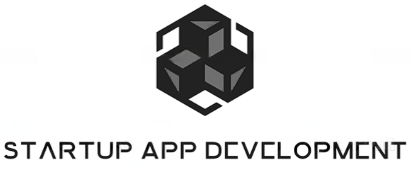In the fast-paced world of app development, staying ahead of the competition can be quite a challenge. However, avoiding some common pitfalls can help you maintain a competitive edge. Whether you’re a seasoned developer or just starting out, understanding these mistakes and learning how to steer clear of them could make all the difference. Let’s dive into the most frequent missteps and how you can avoid them.

1. Neglecting Market Research
Understanding your target audience, their needs, and trends in the market is crucial before jumping into app development. Skipping this step can lead to building an app that doesn’t resonate with users. Conducting thorough market research is not just a one-time activity; it’s essential throughout the app development process. It helps identify potential gaps and opportunities that can be crucial for the success of your app. Without this foundation, you might end up creating a product that lacks appeal or relevance. An app born out of assumptions rather than facts can struggle to find its footing. Therefore, thorough research is your first line of defense against developing a product destined to fail before its launch.
Additionally, an understanding of competitor offerings is equally important during market research. Knowing what’s already available can lead you to innovate and set apart your app with unique features or services. Without this knowledge, you risk diving into a saturated market without a clear differentiator. Observing trends and competitor strategies can aid in better positioning your app, providing insight into features that potential users might value, and allowing you to adjust your development roadmap accordingly.
2. Overcomplicating the User Interface
A clean and intuitive user interface is vital. Overloading your app with too many features or a complex design can overwhelm users and drive them away. Simplicity in UI design is key to ensuring a positive user experience. According to app development insights, many developers fall into the trap of adding unnecessary features, believing it enhances the app. However, this usually results in a clunky user interface that can confuse users rather than help them. A streamlined app with clear, intuitive navigation holds user attention better and promotes regular use. The focus should be on what the user needs most, creating a smooth journey from start to end across different sections of the app.
Moreover, design consistency is often overlooked but plays a fundamental role in maintaining user engagement. Ensuring that each interaction feels predictable helps users to trust and use your app more effortlessly. Inconsistencies create unnecessary hurdles, which could lead to frustration and abandonment. Clean, minimalistic designs are generally more appealing, enabling users to focus on the app’s functionality instead of grappling with complex visual hierarchies. It is crucial to stay informed about what modern consumers expect in terms of aesthetics and functionality, as these factors significantly influence user retention rates.
3. Ignoring User Feedback
User feedback is a goldmine for improvement. Ignoring valuable input can result in missed opportunities to enhance the app and increase user satisfaction. Regularly collecting feedback through surveys, reviews, and in-app comments allows developers to stay tuned to user needs and expectations. Incorporating user suggestions can transform your app from merely functional to truly enjoyable. Listening to your users not only aids in building a more tailored product but also shows them that their opinions matter, fostering loyalty and a better community around your app.
Engaging users in a dialogue fostered by their feedback also serves as a powerful marketing tool. It positions your app as responsive and customer-focused, which can substantially differentiate it from competitors. Many successful apps continually reiterate and evolve based on user feedback, ensuring that they meet or even exceed what the users are seeking. However, it is important to filter and strategically implement feedback to align with the overall app vision, balancing user demands with your business objectives.
4. Lack of Clear Monetization Strategy
Having a solid plan on how your app will make money is essential. Relying solely on ads or leaving monetization as an afterthought can affect your app’s financial success. A clear monetization strategy not only outlines how to generate revenue but also how to sustain it over time. Whether through subscriptions, in-app purchases, premium features, or partnerships, the strategy must align with what your users find valuable. For instance, Startup App Development advises startups to thoroughly research viable monetization paths that do not compromise the user experience, ensuring long-term profitability and user satisfaction.
Exploring flexible monetization models can adapt to evolving user preferences and app functionalities over time. Without a well-defined strategy, app revenue can stagnate, or worse, result in user alienation if monetization methods detract from the core value of the app. Understanding your audience’s willingness to pay and experimenting with different strategies can reveal the most effective path, ensuring you are monetizing in a minimal, non-intrusive way that complements overall user experience.
Users expect a seamless experience across all devices. Failing to optimize for various platforms can limit your app’s reach and usability. With the diversity of devices and operating systems available today, ensuring your app’s compatibility across platforms like iOS, Android, and Windows is paramount. A cross-platform strategy enhances accessibility by providing users with the freedom to switch devices without compromising experience. This involves aligning functionalities and visual elements to offer a consistent and enjoyable journey for all users. Focusing on seamless integrations and responsiveness ensures your app maintains high performance regardless of the platform in use.
Each platform has unique specifications and user expectations, necessitating bespoke adjustments in your app design and functionality. Addressing these nuances in platform optimization can significantly improve user experience and broaden your app’s user base, directly impacting its competitive standing. Furthermore, regular updates and maintenance across all platforms play a vital role in preserving the app’s integrity and ensuring that all users, regardless of their device choice, experience uniform quality performance.
Performance issues can deter users quickly. Regular testing helps ensure that your app runs smoothly and efficiently, keeping users engaged. A rigorous testing routine should include both functional and non-functional testing to assess all app aspects. By identifying bottlenecks and usability issues early, developers can refine the app’s responsiveness and stability, which are non-negotiable for user satisfaction. Reliable performance testing tools uncover areas needing attention, drastically reducing the likelihood of performance drops or system crashes that frustrate users. According to London App Development, automated performance testing can speed up the process while ensuring consistency in results.
Configuration testing on different gadgets checks whether the app performs consistently across a variety of device scenarios. By foreseeing the environments where the app will function, developers can optimize the user experience and iron out potential latency issues or interruptions. Maintaining an iterative testing cycle ensures the app evolves to meet user demands without compromising on speed or efficiency. Balancing resource allocation to focus on both existing functionalities and promising new features fosters an agile development strategy that forefronts user satisfaction by maintaining top-tier performance.
7. Underestimating the Importance of Security
App security cannot be an afterthought. Failing to implement robust security measures can lead to data breaches and loss of user trust. Implementing strong security protocols from the app’s initial development phase is critical. This includes employing encryption, secure APIs, and regular audits to safeguard user information. According to a study covered by BitsWits, poor security practices can have severe repercussions, ranging from data theft to loss of brand reputation. Ensuring your app complies with global standards not only protects your users but also enhances your credibility in the market.
By regularly updating and patching security vulnerabilities, your app remains reliable against emerging threats. Security measures must align with user convenience, protecting data without intruding on user experience. Additionally, educating users on safe practices within the app can further bolster security efforts. Establishing trust by prioritizing security results in higher user retention and aids in setting your app apart in a crowded marketplace.
8. Neglecting Regular Updates
Regular updates keep your app relevant and users engaged. Skipping updates can lead to compatibility issues and a decrease in user satisfaction. By introducing consistent software updates, developers address bugs, introduce new features, and remain aligned with the latest platform updates and user expectations. This not only keeps your app running efficiently but also enhances user experience and satisfaction. An engaged user base is more likely to provide feedback, participate in demos, and advocate for your app, fueling further innovation and relevance.
An update schedule that clearly communicates with users ensures they understand the value of each improvement. Regular maintenance, even for successful apps, aligns them with technological advances that optimize performance and usability. By prioritizing updates, you demonstrate commitment to excellence and retain a competitive edge by preemptively addressing potential technical debt or dissatisfaction. Ultimately, staying proactive with updates fosters a responsive and agile approach that invites continuous improvement and user satisfaction.
9. Poor Project Management
Inefficient project management can delay releases and inflate costs. A well-organized development process can improve productivity and deliver better results. Implementing methodologies like Agile and Scrum enhances team collaboration and aligns efforts towards common goals, effectively managing priorities and timelines. By ensuring streamlined communication among stakeholders, the development process remains transparent and nimble, swiftly adapting to changes in project scope or market demands.
Tools such as project management software provide visibility into task progress and resource allocation, reducing the risks of delays and scope creep. This foresight fosters an environment of accountability and efficiency, enabling the team to focus on honing their craft and delivering higher quality features. Well-managed projects promote stress-free operations, reduce the risk of burnout, and ultimately result in a robust, finely tuned product ready for market.
10. Inadequate Testing Phase
Skipping thorough testing can result in bugs and crashes, damaging user experience. Comprehensive testing ensures a polished product. Manual and automated testing processes are pivotal in validating the functionality, stability, and security of your app. By addressing potential issues before launch, you ensure an impressive user experience and elevate the app’s reputation. Structured testing strategies can highlight crucial areas needing refinements, reducing the risk of post-release pitfalls that could hinder user adoption.
Testing on a spectrum of devices and environments mimics real-world usage conditions, identifying potential obstacles that might otherwise go unnoticed. This holistic approach ensures that performance issues or compatibility hiccups can be strategically tackled beforehand, streamlining the app’s launch process and building user trust in its reliability. Avoiding shortcuts in the testing phase creates a more resilient application ready to meet user demands on release day.
11. Not Planning for Scalability
A good app should be prepared to grow with its user base. Failing to plan for scalability can limit your app’s potential and hinder its success. Anticipating user growth means designing an architecture that can expand without significant downtime. Employing scalable cloud services, load balancing, and modular designs ensures that your app can handle increased demands efficiently, preventing performance bottlenecks. By consulting resources like Startup App Development, developers can explore scalable infrastructure ideas that fortify the app’s ability to handle scaling seamlessly.
Scalability planning from the onset avoids the need for significant re-work as user numbers grow. This foresight allows smooth integration of new features or platforms in response to market opportunities or technological advancements. By committing to scalability planning, you can ensure your app remains viable and adaptable in an ever-changing tech landscape, preserving its competitive edge as it grows with its audience.
12. Ignoring Competitor Analysis
Understanding your competition helps identify unique selling propositions. Overlooking this analysis can lead to missed opportunities for differentiation. Conducting a thorough competitor analysis provides valuable insight into market positioning and outstripping rivals. It helps in identifying competitors’ strengths and weaknesses, enabling you to refine your app and strategies to better meet user needs. Innovative differentiations crafted from this knowledge ensure the app stands out, fulfilling unaddressed user pain points and leveraging market gaps to position your app as a leader. Aligning this strategy with consumer preferences keeps businesses agile in highly competitive markets.
13. Lack of Clear Goals and Objectives
Setting clear and achievable goals provides direction and purpose. Without them, your development process can become unfocused. Establishing well-defined goals and objectives informs both day-to-day operations and long-term strategies. These metrics anchor objectives within realistic timelines, guiding the project toward measurable milestones. When every team member understands the vision, motivation and alignment improve, promoting productive, coordinated efforts.
Clarity in goals also aids in identifying and addressing potential obstacles early in the development cycle, thus minimizing disruptions. Collaboration becomes easier when teams share a unified vision, enhancing efficiency and driving innovation as they work towards common aspirations. This structured approach yields a more focused development process—channeling resources into scaling features that deliver high impact, attaining optimum product efficacy, and ensuring user satisfaction.
14. Rushing the Launch Process
Launching too soon can result in an unpolished product being released. Ensuring thorough testing and marketing preparations leads to a more successful launch. The launch stage is not merely the culmination of the development cycle but the beginning of the app’s journey in the market. Ensuring all elements—functionality, user interface, marketing, and support systems—are polished secures a stronger entry into the market. Engaging users early with beta releases or previews aids in tailoring the final product to better meet expectations. Moreover, pre-launch marketing hype ensures that prospective users are aware and excited, driving initial downloads and engagement, which sets a solid foundation for ongoing success.
15. Forgetting to Plan for Marketing
An exceptional app needs a solid marketing strategy to stand out. Without effective marketing, even the best apps may go unnoticed. An integrated marketing strategy aligns adoption with the app’s launch objectives, ensuring consistent branding and communication that echoes its value across platforms. This includes app store optimization (ASO), social media engagement, and incentivized promotions that enhance visibility and user acquisition rates. Leveraging tailored marketing campaigns based on user insights assures that the app not only reaches but resonates with its intended audience, ultimately driving installs and long-term user engagement. Without this forethought, your app may remain unnoticed in a sea of competitors, regardless of its innovation or utility.










